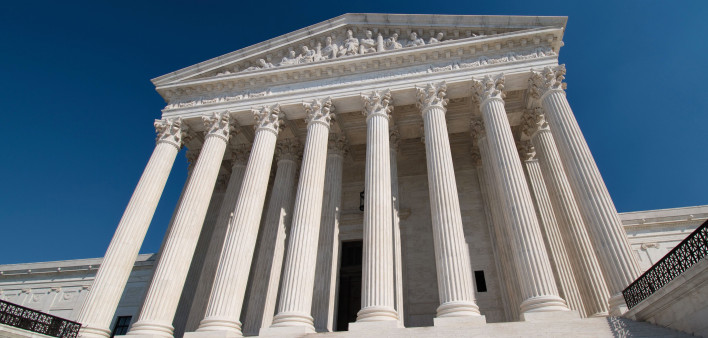Despite the work being done to undo many harmful health care actions taken by the Trump administration, the conservative, anti-choice line taken by the former president is still impacting reproductive rights and care in the United States.
As the onslaught of anti-choice laws being enacted in statehouses around the country continues, anti-choice advocates are seeing a long-awaited and carefully constructed outcome: the opportunity to challenge Roe v. Wade’s precedent to a right to medical privacy and, ultimately, to abortion, in the U.S. Supreme Court.
The Supreme Court announced it would hear Dobbs v. Jackson Women’s Health Organization, a case brought about by a challenge to Mississippi’s recent ban on abortion after 15 weeks. The overall question the court will consider is whether any prohibition on abortion care before the time a fetus could survive outside of the womb with medical intervention, also known as viability, is unconstitutional.
Advocates are concerned because, despite similar bans being passed, challenged and defeated time and again, this is the first time a case challenging Roe v. Wade has made it to the Supreme Court. With the court now stacked with Trump’s three anti-choice appointees and holding a 6-3 conservative majority, advocates fear there is a chance Roe v. Wade could be overturned.
While the upcoming Supreme Court deliberation does not bode well for the protection of bodily autonomy for people who can become pregnant, it is important to note that at this time, abortion is still legal in all 50 states.
Texas Gov. Greg Abbott then took the opportunity to continue to challenge Roe v. Wade by signing a bill that prohibits abortion in the state as soon as a fetal heartbeat can be detected. In most cases, fetal heartbeats can be detected at about six weeks of gestation. The time limit is so restrictive that, for many people, abortion would no longer be an option by the time they even found out they were pregnant.
The Texas bill was also written by anti-choice advocates in a way to most quickly raise a constitutional challenge the Supreme Court would have to address. While Texas will not enforce the abortion ban on people who can become pregnant, the law allows for any Texan to sue anyone whom they believe to be involved in abortion care—from the doctor assisting one, front desk clinic staff checking patients in, or even a friend or family member who drives a patient to their appointment.
This law is set to take effect on Sept.1, but it will be challenged. This means that if you have an appointment to receive care, please keep it, and if you are supporting someone in their abortion decision and process, please continue to do so.
With the state of contraceptive and primary care access in this country, abortion care providers are significant providers of many individuals’ sexual wellness care, whether or not they are receiving abortion care themselves. These providers are integral to our collective efforts to end the HIV epidemic.
Congress and the Biden administration must work together to swiftly advance federal protections to abortion care. AIDS United will continue to monitor this situation and advocate for the protection of a full spectrum of reproductive and sexual wellness care for all.








Comments
Comments